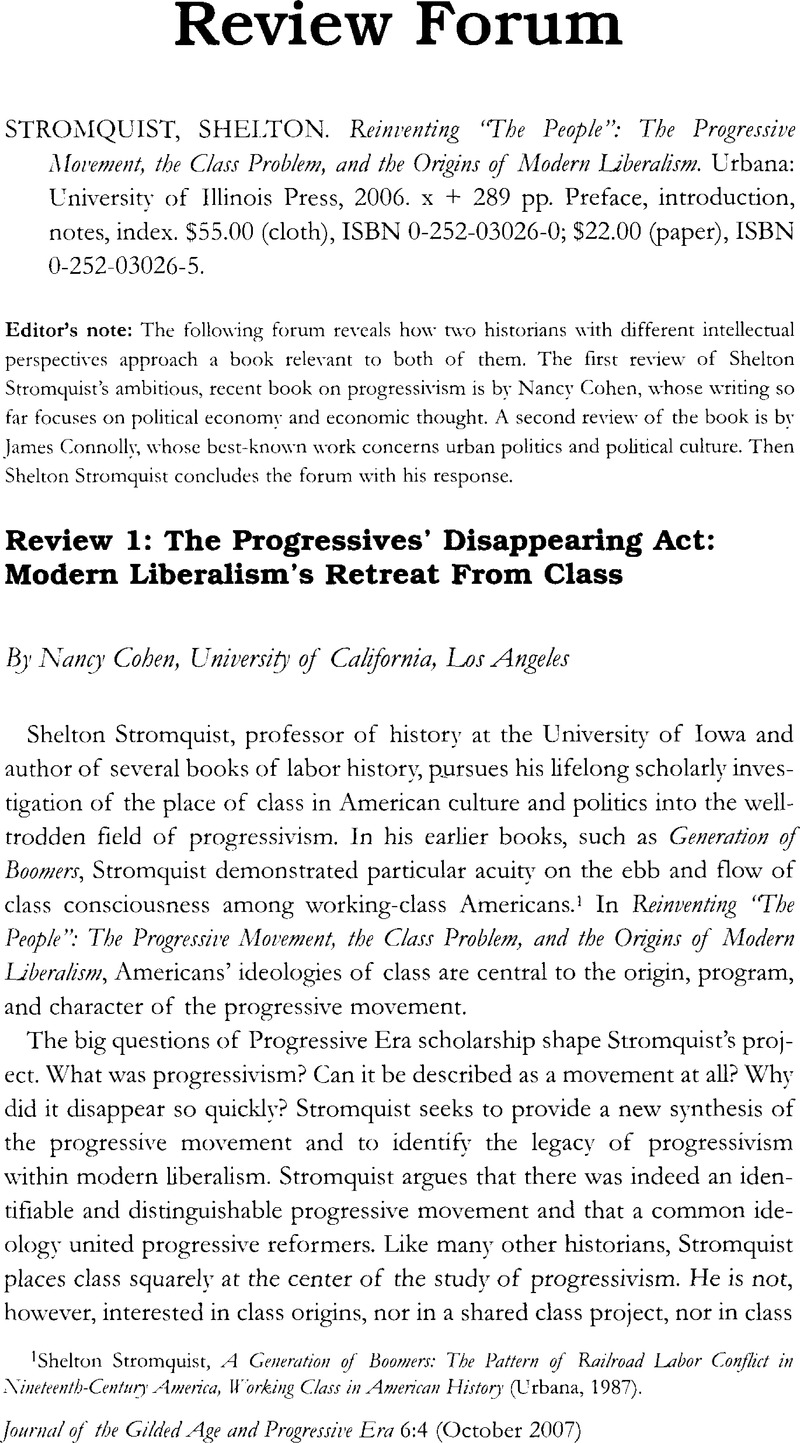No CrossRef data available.
Article contents
Review 1: The Progressives' Disappearing Act: Modern Liberalism's Retreat From Class
Review products
Published online by Cambridge University Press: 08 November 2010
Abstract

- Type
- Review Forum
- Information
- The Journal of the Gilded Age and Progressive Era , Volume 6 , Issue 4 , October 2007 , pp. 459 - 463
- Copyright
- Copyright © Society for Historians of the Gilded Age and Progressive Era 2007
References
1 Stromquist, Shelton, A Generation of Boomers: The Pattern of Railroad Labor Conflict in Nineteenth-Century America, Working Class in American History (Urbana, 1987).Google Scholar
2 Flanagan, Maureen, America Reformed: Progressives and Progressirisms, 1890s- 1920s (New York, 2006),Google Scholar argues that the reform struggles of the period revolved around defining the nature and purpose of U.S. democracy. Stromquist cites many recent works and credits the work of the last two decades as making possible a new synthesis (viii-ix). Yet works published since roughly 1998-99 are cited in very limited contexts, and their arguments are hardly taken into account in the analysis. For example, Stromquist relies on works published in the eighties and early nineties for his chapter on “class bridging and the world of female reform,” despite the availability of a rich recent literature on gender, women, and Progressivism. See Deutsch, Sarah, Women and the City: Gender, Space, and Power in Boston, 1870-1940 (New York, 2000); andGoogle ScholarFlanagan, Maureen A., Seeing with Their Hearts: Chicago Women and the Vision of the Good City, 1871-1933 (Princeton, 2002).Google Scholar More surprising, alternative interpretations of ideologies of class and the people within recent historiographical literature are absent from the discussion. For example, how does Stromquist understand the relationship between progressive ideas of classlessness and the rising conception of the American as a consumer, the consumer as a model of citizenship, or the transcendence of class conflict in the distributive process, which have been explored differently in: Cohen, Nancy, The Reconstruction of American Liberalism, 1865-1914 (Chapel Hill, 2002)Google Scholar; Glickman, Lawrence B., A Living Wage: American Workers and the Making of Consumer Society (Ithaca, NY, 1997)Google Scholar; Livingston, James, Pragmatism and the Political Economy of Cultural Revolution, 1850-1940 (Chapel Hill, 1994); andGoogle ScholarSklansky, Jeffrey P., The Soul's Economy: Market Society and Selfhood in American Thought, 1820-1920 (Chapel Hill, 2002)?Google Scholar There are parallel omissions on the subjects of race, politics, regional variation, and other critical issues.


